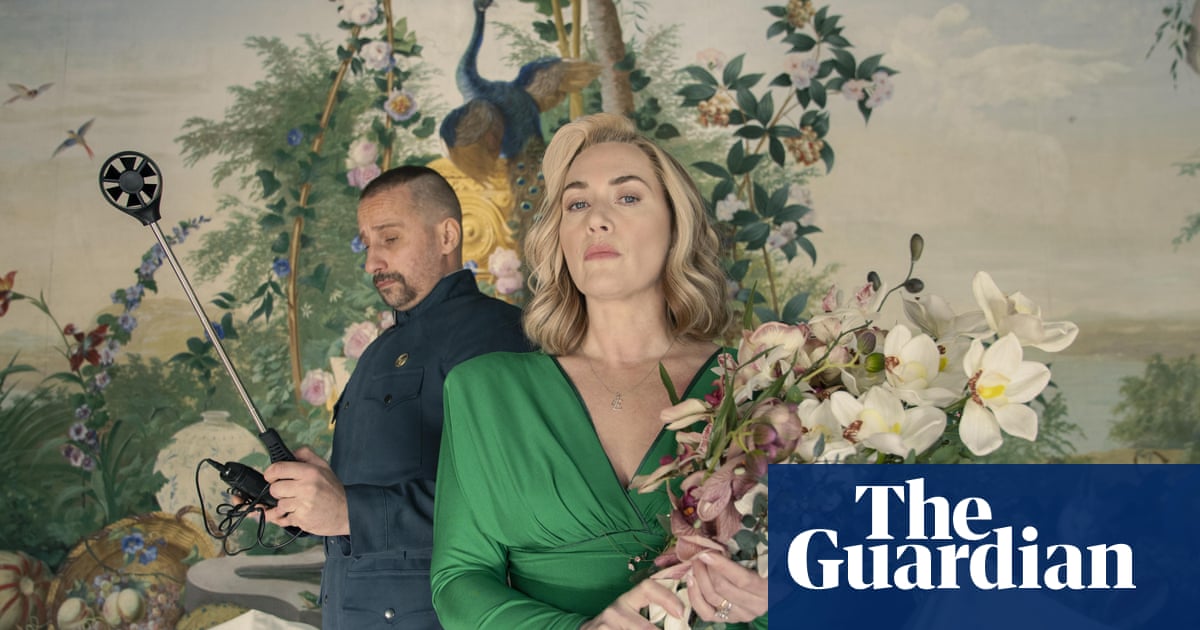
hen Nish Kumar’s political comedy show The Mash Report returned to our TV screens earlier this month, things looked very different to the last series – and not just because he’d accidentally shaved his beard off. With the UK’s Covid-19 lockdown in place, Kumar hosted the show from his spare room, forcing him to grapple with a professional camera and lighting on his own.
Writing the show had been challenging, too. He knew that viewers who were isolated from loved ones needed a laugh. But making jokes while respecting the gravity of the situation is a tricky balancing act. In the end, Kumar decided to not to hold back: “This whole situation is a weird combination of boring and terrifying, like an epidemiology lecture delivered by Freddy Krueger – or Dominic Raab being, well, Dominic Raab,” he announced. Meanwhile, co-star Rachel Parris tackled self-appointed coronavirus experts, including “testicle with teeth”, JD Wetherspoon boss Tim Martin.
The Mash Report – and Kumar and Parris’s segments in particular – has never shied away from tough topics. In past series, Kumar has taken on the rise of the far right, Conservative immigration policies and climate change, somehow making them all funny.
“It’s obviously not providing people with a full escape,” he says. “The last few years have been very frenetic. We’ve tried to take those news stories and make them into something that is entertaining, funny and gives people some catharsis, but also doesn’t denigrate the seriousness of the issues.”
Kumar has been creating political comedy for around a decade. During that time, multiple Conservative governments, Brexit and Trump have provided fuel for his best material, causing his profile to rise as he became host of the BBC’s topical radio comedy Newsjack, before taking the lead on The Mash Report.
His personal politics are on the left: “I’d hoped, after the financial crisis in 2008, that we would look at the systemic failures that had allowed the crash to happen and rebalance our economy. I’m sad that anger has been directed towards groups of people who are entirely blameless – people on benefits, people from minority groups. These are not the enemies.”
That sense of injustice fuels Kumar’s best work, when, as he puts it, “you believe in the idea that you’re writing the joke about.”
It’s clearly easier, then, to write impassioned comedy when objectionable politicians and policies provide your punchlines: Nigel Farage’s xenophobia, Theresa May’s hostile environment, Donald Trump’s everything. If things were different – a socialist government, fully funded public services, impeccable leaders – would the material dry up?
“I would much rather work a bit harder,” Kumar laughs. “I would rather be writing jokes in a less volatile political climate, still committed to ideals, but without the world burning. Doing comedy can make you a bit hardened, but I’m not a full psychopath yet that I would be like: ‘Yes! Everyone’s afraid to go outside. Great for me and my content!’”
Kiri Pritchard-McLean, current host of Newsjack and regular on Frankie Boyle’s New World Order and Have I Got News For You, agrees. “In the last election, I wouldn’t have chosen the Tory government, but that is probably easier to satirise than a hung parliament or a Labour government,” she says. “I would always much rather we had a political system that reflected what I think is fairest, and it was my difficult job to satirise that, than having people I don’t agree with in power, and it being much easier to take potshots at them.”
Each episode of Newsjack begins with a monologue where Pritchard-McLean jokes about events from the previous week: “If I don’t care about the subject, I find it quite hard to write a monologue about it.” She’s tackled the racism suffered by Meghan Markle, online abuse and the death of Caroline Flack, and Harvey Weinstein’s crimes.
She describes herself as leftwing and anti-inequality – “we don’t need as many billionaires and there are a lot of people living in shit places that could do with some money”. That comes through strongly in her standup. It’s there in Newsjack, too, but across the show, which has other writers and receives submissions from the public, there’s a drive to satirise each end of the political spectrum. “It’s not a party political broadcast for anyone,” she says. “It’s been a big journey for me – you can’t just say: ‘These are the bad guys’. We’ve got do better than that. A level of analysis goes into stuff that you might not appreciate when you hear that sketch about a dolphin or whatever. It’s a really hard balance to strike, but it’s also part of making a good show.”
Over on The Mash Report, Kumar has freedom to broadcast his opinions. “We wanted to do something that had a point of view. That doesn’t mean you’re there to campaign for one party, but you’re definitely there to represent a set of principles you believe in.”
Nevertheless, he wouldn’t shy away from making others on the left the subject of his jokes. “There always needs to be accountability, regardless of who’s in government,” Kumar says. “I would almost think you’d want to do that more to people you agree with, because you want to push them to achieve the ideals you share.”
Like Kumar and Pritchard-McLean, standup comedian Tom Mayhew hasn’t yet had the chance to make comedy under a government he agrees with, but his work has been fuelled by this opposition. His 2019 Edinburgh show I, Tom Mayhew was a takedown of austerity, based on his own experience of the benefits system and the way claimants are treated. His next show looks at so-called low-skilled jobs – how they’re integral to our society (as proven by the current crisis) and bring joy and worth to many workers, despite the fact they’re not well-paid.
“When you’re passionate about something, it makes it easier to write comedy about it,” he says. “Even if it’s tough, you’ll find a way to write something funny because you want to express these thoughts and feelings.”
If we did end up in a socialist utopia, Mayhew admits that his onstage persona would become cheerier. “But even if the political landscape changed there will always be people to be held accountable, and there’ll always be perceptions that will need challenging.”
Like Kumar’s material about climate change or Pritchard-McLean on misogyny, Mayhew’s comedy doesn’t shy away from heavy topics. Yet he’s conscious that audiences don’t want to be preached to. “I want my comedy to be funny first, but meaningful a close second,” he says. “Even if it doesn’t change people’s minds, they’ll hopefully be a bit more understanding of a viewpoint that isn’t theirs. There are some times you go to shows and it does feel a bit like a lecture. That’s not what comedy should be.”
Pritchard-McLean agrees: “I hate seeing satire monologues where they’re tapping in open goals, like ‘The NHS are the real heroes!’ Yeah, we already know that, you’re not bringing anything to the conversation.”
Avoiding those easy jokes can be difficult when events are either too absurd or too horrible to find humour in. Kumar says: “When the health secretary gets coronavirus, you think: this is almost beyond comedy.”
With “cartoonish figures” like Donald Trump, Kumar strives to go beyond obvious quips about hair or fake tan: “They’re not fringe candidates, they’re the most powerful men in the world. We’re always trying to write jokes that treat them with the appropriate level of seriousness.”
The next few episodes of The Mash Report are set to be filmed under lockdown. Kumar and co are ready to make it funny for their captive audience: “Prior to 2016, you had to convince people that politics was something they wanted to hear about – that was part of the trick of doing political comedy. Now, people understand the impact of politics, and corona has given them even more time to focus on being terrified by the news.”
The Mash Report is on BBC Two on Fridays; Kiri Pritchard-McLean hosts Comedy at the Covid Arms online on Saturdays.











